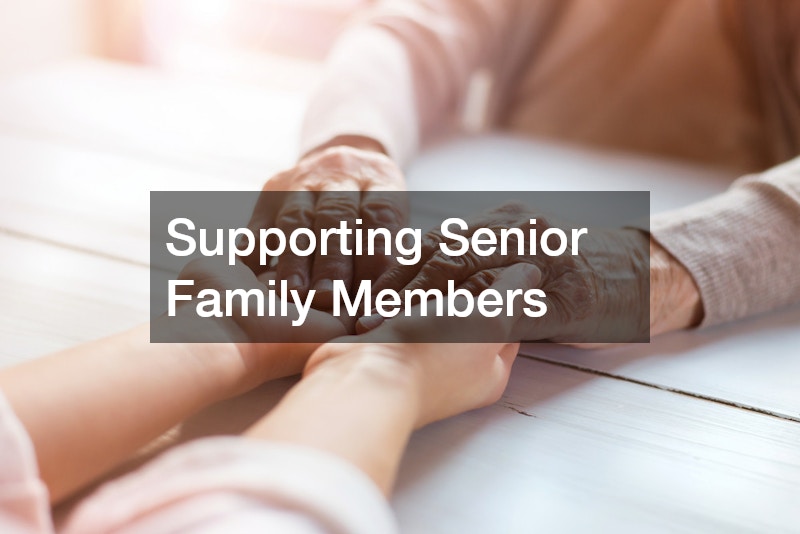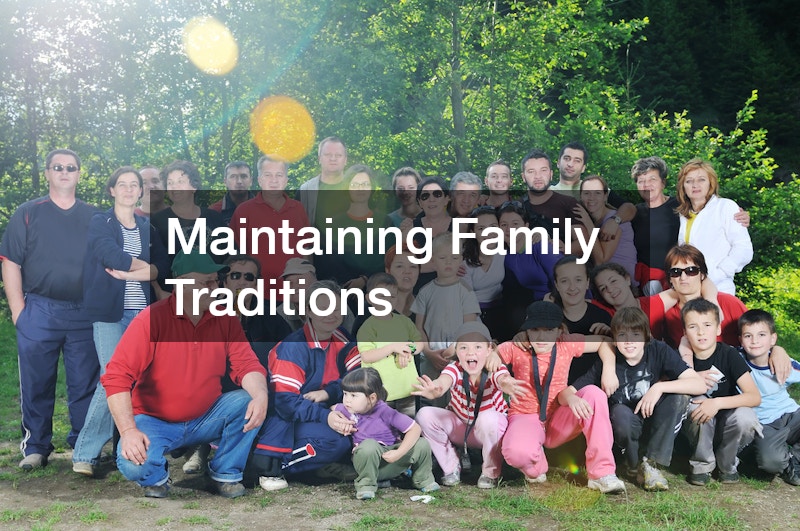Families today face the challenge of balancing multiple responsibilities while maintaining meaningful connections. Between work commitments, school schedules, and personal obligations, it’s easy for family time to take a backseat. However, making deliberate choices to prioritize family can create lasting bonds, reduce stress, and nurture a supportive home environment. Small actions, often overlooked, can have a profound impact on ensuring that loved ones feel valued and connected. When these actions are consistent, they create a culture where family relationships are given priority, fostering stronger communication and emotional resilience among members.
Many families find that even simple rituals, such as shared meals, game nights, or weekend outings, provide an opportunity to reconnect. These moments allow for conversations that go beyond the daily logistics of life, helping family members express feelings and offer support to one another. Prioritizing family does not require grand gestures or expensive activities; it’s the consistent attention to small moments that build a foundation for lifelong closeness. Establishing these habits encourages children to feel secure and adults to feel supported, creating a dynamic where the family functions as a team rather than a collection of individuals.
Additionally, planning for the future while keeping family at the center can involve practical considerations like financial planning and long-term care decisions. Engaging professionals when necessary to assist with planning can relieve stress and free up time for family engagement. With intentionality, families can strike a balance between obligations and quality time, ensuring that their priorities align with their values. When families consciously commit to practices that place their relationships first, the result is a home filled with trust, warmth, and shared purpose. By adopting small yet meaningful strategies, families can cultivate an environment where everyone feels appreciated and connected. Ultimately, the goal is to embed family into the fabric of daily life so that no matter the demands of the world, the focus remains clear.
1. Creating Shared Memories Through Simple Rituals

Family experiences often carry more weight than material possessions, and simple rituals can help reinforce this. Scheduling regular family dinners, movie nights, or weekend outings allows everyone to anticipate shared experiences and form lasting memories. Even activities that seem minor, like a morning coffee together or reading bedtime stories, foster connection and emotional well-being. Integrating these routines helps children develop a sense of security, knowing that family interaction is a consistent part of life.
For families managing complex schedules, seeking guidance from estate planners can help organize financial and life priorities, freeing up time for meaningful activities. When responsibilities are managed thoughtfully, families can focus on engagement rather than stress. Making a conscious effort to prioritize interaction ensures that, despite the demands of work, school, or social commitments, the family remains central. These small rituals reinforce the message that Family Always Comes First, creating a strong foundation for mutual respect, communication, and support. By valuing these shared moments, families cultivate a sense of belonging that transcends everyday distractions and fosters long-term cohesion.
2. Prioritizing Communication and Listening
Open and honest communication is a cornerstone of strong family relationships. Listening attentively to each member, validating their experiences, and engaging in meaningful conversations can strengthen bonds and reduce misunderstandings. Even short daily check-ins or structured family meetings can provide an avenue for everyone to feel heard and understood.
Incorporating professional support, such as invisible aligners for children, not only contributes to health and confidence but can also serve as an example of family attention to individual needs. These moments underscore that the family is committed to caring for one another holistically. Establishing clear communication channels helps reinforce the principle that Family Always Comes First, ensuring that emotional needs are addressed alongside practical concerns. When families invest in attentive listening, they create an environment of trust and openness, where members feel valued and supported in both personal and collective goals.
3. Making Time for Educational Growth
Education extends beyond formal schooling. Supporting children’s curiosity, enrolling them in enriching activities, and participating in learning experiences together reinforces family connection. This proactive involvement demonstrates a commitment to both personal growth and collective development.
Utilizing resources like a CPA firm can help families manage finances efficiently, allowing more room for educational opportunities, family trips, or learning-centered outings. Strategic planning ensures that financial constraints do not compromise the ability to prioritize family learning experiences. By consciously creating opportunities for growth, families reinforce that Family Always Comes First, embedding learning into everyday life while nurturing a culture of support and curiosity. These efforts highlight that investing in knowledge and skill development can be a shared family value, strengthening both individual and group achievements.
4. Health and Well-being as a Family Focus

Family health extends beyond physical care to include mental and emotional wellness. Encouraging regular check-ups, shared fitness activities, and open dialogue about emotional challenges supports the holistic development of each member. Family well-being improves resilience, reduces stress, and enhances overall happiness, making it easier to prioritize meaningful connections.
Seeking services like child dentistry ensures that children maintain healthy routines while reinforcing the value of proactive care. Integrating these practices into daily life demonstrates a commitment to wellness and highlights the principle that Family Always Comes First. When families invest in their health collectively, it builds habits that benefit each member individually while strengthening the family unit as a whole. Consistent attention to well-being fosters longevity, energy, and the ability to engage fully in shared experiences.
5. Nurturing Emotional Connections
Strong families are built on empathy, understanding, and the consistent expression of love. Simple gestures, like heartfelt conversations, support during challenging times, and recognition of achievements, nurture emotional bonds. These actions communicate that each family member is valued and contributes meaningfully to the household.
Professional support, such as tongue tie treatment, may play a role in a child’s developmental health, and addressing these needs together underscores the priority of the family’s well-being. By integrating these moments into everyday life, families affirm that Family Always Comes First. Emotional connection not only strengthens current relationships but also equips members with the tools to foster resilience and empathy for years to come. Recognizing emotions, celebrating successes, and offering comfort in struggles reinforces trust, love, and a sense of belonging that is central to family life.
6. Balancing Work and Family Commitments
Striking a balance between professional responsibilities and family time can be challenging. Setting boundaries, prioritizing quality over quantity, and scheduling consistent family moments allows households to maintain cohesion without sacrificing career goals.
By making deliberate choices to integrate family into daily routines—like planning dinner schedules, weekend activities, or brief check-ins—families remind each other that personal and professional life need not conflict. Maintaining this balance reinforces that Family Always Comes First, allowing members to enjoy both fulfillment at work and meaningful engagement at home. Creating routines that respect everyone’s time and responsibilities ensures that the family unit remains the primary focus, cultivating an atmosphere of understanding, respect, and mutual support.
7. Supporting Senior Family Members

Caring for aging family members is a vital part of maintaining a family-first approach. Ensuring they have access to companionship, healthcare, and daily support demonstrates respect and commitment to their well-being. Small gestures, like regular visits or coordinating care, can significantly enhance their quality of life.
Engaging senior care services provides the resources and expertise needed to maintain independence while ensuring safety and comfort. Incorporating these measures reinforces the concept that Family Always Comes First, showing that family responsibilities extend to all generations. Prioritizing seniors’ needs ensures that older family members feel valued, respected, and supported within the family framework, strengthening intergenerational bonds and fostering a culture of care.
8. Celebrating Personal Milestones
Acknowledging birthdays, anniversaries, graduations, and achievements fosters a sense of belonging and recognition within the family. Celebrations provide opportunities for shared joy, creating memories that reinforce familial bonds and emphasize support for individual growth.
Services like dermatology services may play a role in personal confidence and well-being, and celebrating milestones, including personal care achievements, shows a commitment to holistic attention. Recognizing these moments illustrates that Family Always Comes First, integrating celebrations into the broader framework of family engagement and connection. By acknowledging achievements both big and small, families cultivate an atmosphere of encouragement, affirmation, and mutual respect.
9. Encouraging Physical Activity Together
Participating in group activities such as hikes, sports, or outdoor adventures encourages bonding while promoting health. Shared physical activity provides opportunities for conversation, cooperation, and fun, strengthening connections in an active, engaging manner.
Incorporating options like chiropractic treatments ensures family members maintain physical health, contributing to the ability to engage in such activities fully. By investing in wellness and active time together, families reinforce that Family Always Comes First, fostering both physical well-being and emotional connection. These experiences serve as opportunities to teach collaboration, resilience, and mutual encouragement while reinforcing a culture of family-centered activity.
10. Maintaining Family Traditions

Traditions offer a sense of identity, belonging, and continuity across generations. Whether it’s holiday rituals, seasonal outings, or regular celebrations, traditions create shared experiences that reinforce family cohesion.
Consistently observing these practices demonstrates commitment and prioritization, reminding each member that Family Always Comes First. Maintaining traditions provides children and adults alike with a sense of stability and belonging, establishing a shared narrative that strengthens emotional bonds and fosters continuity within the family unit.
11. Exploring Hobbies Together
Engaging in hobbies or creative pursuits as a family encourages teamwork, creativity, and shared accomplishment. Activities such as cooking, painting, music, or gardening provide avenues for enjoyment and meaningful interaction.
Services like home health care can support families managing unique health needs, allowing participation in hobbies without compromising safety or well-being. By integrating these activities into daily routines, families reinforce the principle that Family Always Comes First, creating opportunities for joy, bonding, and mutual support. Shared hobbies foster collaboration, patience, and communication, enriching family relationships while creating lasting memories.
12. Adventures That Build Connection
Family trips, outdoor excursions, or local adventures offer opportunities to explore together while strengthening relationships. Whether it’s a weekend getaway, a camping trip, or even short city outings, shared experiences build lasting memories and deepen bonds. Adventure encourages problem-solving, collaboration, and resilience while creating joyful moments to cherish.
Incorporating options like bicycle rentals during trips allows families to engage actively and inclusively, creating experiences that are both fun and health-conscious. These shared adventures reinforce the idea that Family Always Comes First, demonstrating that intentional planning and quality time are central to nurturing relationships. Adventures, big or small, provide a platform for communication, trust, and shared achievement, embedding family connection into the everyday rhythm of life. By prioritizing exploration and enjoyment together, families cultivate a culture of engagement, mutual support, and shared enthusiasm for life’s experiences.
Prioritizing family does not require extravagant efforts or complex planning; it begins with conscious, consistent choices that foster connection, support, and shared joy. From daily rituals to special outings, education, health, and emotional nurturing, the ways to demonstrate that Family Always Comes First are abundant and accessible. Incorporating small habits, such as attentive listening, celebrating milestones, or engaging in shared hobbies, strengthens bonds and creates a resilient, loving family culture.
Families that actively prioritize one another experience deeper trust, emotional security, and collective satisfaction. Involving professionals like estate planners, child dentistry, or senior care services where necessary can alleviate stress and provide structured support, enabling families to focus on meaningful interactions rather than logistical burdens. Consistently engaging in thoughtful, family-centered actions ensures that every member feels valued, respected, and supported.
Ultimately, placing family first is a deliberate, ongoing process that shapes the emotional landscape of the household. By integrating small, intentional practices into daily life, families can cultivate enduring relationships that withstand challenges, celebrate achievements, and create a nurturing environment for growth and happiness. Whether through simple rituals, adventures, health care attention, or shared creative pursuits, families can ensure that Family Always Comes First. This commitment to one another fosters a sense of belonging, strengthens emotional resilience, and leaves a legacy of care and connection for generations to come. Prioritizing family is not a singular act but a continuous journey of love, support, and shared experience that enriches the lives of everyone involved.

